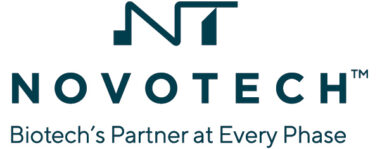The Drug Trends program at the National Drug and Alcohol Research Centre (NDARC), UNSW Sydney has today released findings from its annual surveys with hundreds of people who regularly use drugs, recruited from each capital city in Australia.
The 2024 Ecstasy and Related Drugs Reporting System (EDRS), a national sample of 740 people who regularly use ecstasy and/or other illicit stimulants, found significant changes in the use of some substances in 2024.
Recent use of non-prescribed pharmaceutical stimulants—such as ADHD medications dexamphetamine and methylphenidate, and narcolepsy drug modafinil— represented the highest per cent of use observed since the commencement of monitoring in 2003.
Drug Trends Program Lead and NDARC Deputy Director, Dr Rachel Sutherland said more than half (54%) of EDRS participants reported recent non-prescribed use of such stimulants in 2024, compared with 47% in 2023 and 52% in 2022.
“While most participants who reported non-prescribed pharmaceutical stimulant use reported swallowing these substances (94%), one-quarter (26%) reported snorting as a route of administration, a slight increase from 2023 (20%),” Dr Sutherland said.
“This is of potential concern given that snorting these substances can not only result in physical harms such as nasal/sinus damage but can also heighten the risks associated with active forms of pharmaceutical stimulants due to a faster onset of action and higher bioavailability.”
Recent use of non-prescribed ketamine remained stable overall at 53% (up from 49% last year) but also represented the highest rate of use recorded since monitoring began.
"It is important to note that most participants who had used ketamine reported infrequent use (i.e., less than monthly), although approximately one in 10 reported weekly or more frequent use,” Dr Sutherland said.
Additional findings from the 2024 EDRS report:
- There were significant changes in the perceived availability of all forms of MDMA in 2024, compared to 2023, with more participants nominating availability as ‘easy’ or ‘very easy’ in 2024.
- Past six-month cocaine use remained high and stable, with 80% of the sample reporting past six-month use.
- Almost two-thirds (63%) of participants said they had heard of naloxone, a lifesaving opioid overdose reversal agent, representing a significant increase in awareness from 2023 (57%). However, only 6% of participants reported obtaining naloxone in the past year.
“Given that substances such as cocaine and ketamine have recently been found to contain opioids, and in some cases have contributed to severe overdoses in Australia, there is a need to increase naloxone awareness and uptake among people who use these substances,” Dr Sutherland said.
NDARC Director, Professor Michael Farrell said the Drug Trends program is key to identifying emerging trends in substance use in Australia.
“NDARC has coordinated the Drug Trends program since 1996 and its ongoing monitoring systems provide timely information for policy responses and intervention,” Professor Farrell said.
In addition to the EDRS, Drug Trends today released findings from the 2024 national Illicit Drug Reporting System (IDRS), which comprises a national sample of 884 people who regularly inject illicit drugs.
The EDRS and IDRS reports can be found on the NDARC website.
-ENDS-
Contact details:
Media contact: 0401 713 850 | [email protected]
For reference: When reporting on drugs and alcohol, we encourage consultation of the Mindframe guidelines on ‘Communicating about alcohol and other drugs’ and ‘Communicating about suicide’, and the ‘Language Matters’ guide published by the NSW Users and AIDS Association.
We also encourage inclusion of the following helpline information in all reporting: People can access free and confidential advice about alcohol and other drugs by calling the National Alcohol and Other Drug Hotline on 1800 250 015.

